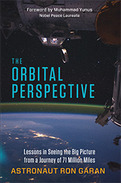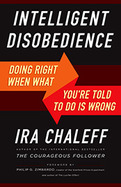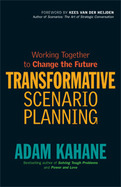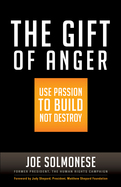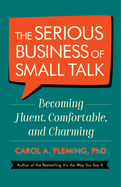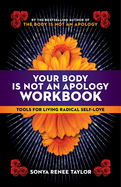Search Results: "Social Venture Networks"
Results 193-198 of 404
For astronaut Ron Garan, living on the International Space Station was a powerful, transformative experience—one that he believes holds the key to solving our problems here on Earth.
On space walks and through windows, Garan was struck by the stunning beauty of the Earth from space but sobered by knowing how much needed to be done to help this troubled planet. And yet on the International Space Station, Garan, a former fighter pilot, was working work side by side with Russians, who only a few years before were “the enemy.” If fifteen nationalities could collaborate on one of the most ambitious, technologically complicated undertakings in history, surely we can apply that kind of cooperation and innovation toward creating a better world. That spirit is what Garan calls the “orbital perspective.”
Garan vividly conveys what it was like learning to work with a diverse group of people in an environment only a handful of human beings have ever known. But more importantly, he describes how he and others are working to apply the orbital perspective here at home, embracing new partnerships and processes to promote peace and combat hunger, thirst, poverty, and environmental destruction. This book is a call to action for each of us to care for the most important space station of all: planet Earth. You don't need to be an astronaut to have the orbital perspective. Garan's message of elevated empathy is an inspiration to all who seek a better world.
On space walks and through windows, Garan was struck by the stunning beauty of the Earth from space but sobered by knowing how much needed to be done to help this troubled planet. And yet on the International Space Station, Garan, a former fighter pilot, was working work side by side with Russians, who only a few years before were “the enemy.” If fifteen nationalities could collaborate on one of the most ambitious, technologically complicated undertakings in history, surely we can apply that kind of cooperation and innovation toward creating a better world. That spirit is what Garan calls the “orbital perspective.”
Garan vividly conveys what it was like learning to work with a diverse group of people in an environment only a handful of human beings have ever known. But more importantly, he describes how he and others are working to apply the orbital perspective here at home, embracing new partnerships and processes to promote peace and combat hunger, thirst, poverty, and environmental destruction. This book is a call to action for each of us to care for the most important space station of all: planet Earth. You don't need to be an astronaut to have the orbital perspective. Garan's message of elevated empathy is an inspiration to all who seek a better world.
When It's Smart to Say No
Nearly every week we read about a tragedy or scandal that could have been prevented if individuals had said no to ill-advised or illegitimate orders. In this timely book, Ira Chaleff explores when and how to disobey inappropriate orders, reduce unacceptable risk, and find better ways to achieve legitimate goals.
The inspiration for the book, and its title, comes from the concept of intelligent disobedience used in guide dog training. Guide dogs must recognize and resist a command that would put their human and themselves at risk and identify safer options for achieving the goal. This is precisely what Chaleff helps humans do. Using both deeply disturbing and uplifting examples, as well as critical but largely forgotten research, he shows how to create a culture where, rather than “just following orders,” people hold themselves accountable to do the right thing, always.
Nearly every week we read about a tragedy or scandal that could have been prevented if individuals had said no to ill-advised or illegitimate orders. In this timely book, Ira Chaleff explores when and how to disobey inappropriate orders, reduce unacceptable risk, and find better ways to achieve legitimate goals.
The inspiration for the book, and its title, comes from the concept of intelligent disobedience used in guide dog training. Guide dogs must recognize and resist a command that would put their human and themselves at risk and identify safer options for achieving the goal. This is precisely what Chaleff helps humans do. Using both deeply disturbing and uplifting examples, as well as critical but largely forgotten research, he shows how to create a culture where, rather than “just following orders,” people hold themselves accountable to do the right thing, always.
This is the first book focused on how to do and use scenario planning – which is one of the most widely used tools in the world for strategic planning, change management, innovation, problem solving, and similar purposes – for social change at the community, national, and global levels. Adam Kahane is one of the world's pioneers and leaders on this topic and he is the author of two bestselling books.People who are trying to solve tough economic, social, and environmental problems often find themselves frustratingly stuck. They can't solve their problems in their current context, which is too unstable or unfair or unsustainable. They can't transform this context on their own-it's too complex to be grasped or shifted by any one person or organization or sector. And the people whose cooperation they need don't understand or agree with or trust them or each other.
Transformative scenario planning is a powerful new methodology for dealing with these challenges. It enables us to transform ourselves and our relationships and thereby the systems of which we are a part. At a time when divisions within and among societies are producing so many people to get stuck and to suffer, it offers hope-and a proven approach-for moving forward together.
Transformative scenario planning is a powerful new methodology for dealing with these challenges. It enables us to transform ourselves and our relationships and thereby the systems of which we are a part. At a time when divisions within and among societies are producing so many people to get stuck and to suffer, it offers hope-and a proven approach-for moving forward together.
The Gift of Anger
2016
Under Joe Solmonese's leadership, the Human Rights Campaign became the model other organizations look toward to create effective social and political change. Against daunting odds, HRC was instrumental in passing landmark national legislation such as the Matthew Shepard and James Byrd, Jr., Hate Crimes Prevention Act; repealing “Don't Ask, Don't Tell”; and passing marriage equality acts in eight states. How did Solmonese and HRC do it?
What Solmonese reveals in this book is that for him, the key to success was learning to harness his anger. Essentially it's just a form of energy. Channeled, it can keep you moving forward on a long journey. But uncontrolled, it can blow everything up.
With this as his guiding principle, Solmonese uses stories from his work with HRC and his previous position as CEO of the powerful women's organization EMILY's List to share a series of often-surprising lessons. For example, empathize with your enemies instead of shaming them, find allies wherever you can, and ask for the doable, not the impossible (even when the “impossible” is your ultimate goal). Most striking in this book are the stories of Solmonese's ability to draw some kind of win—however small—from seeming adversaries.
But at every step of the way he emphasizes the importance of managing the yin-yang tension of anger. Particularly when one is dealing with irrational and offensive attitudes, the temptation is ever present to give in to righteous indignation. While it's fine to feel it, Solmonese's advice is to always be strategic with your outrage.
What Solmonese reveals in this book is that for him, the key to success was learning to harness his anger. Essentially it's just a form of energy. Channeled, it can keep you moving forward on a long journey. But uncontrolled, it can blow everything up.
With this as his guiding principle, Solmonese uses stories from his work with HRC and his previous position as CEO of the powerful women's organization EMILY's List to share a series of often-surprising lessons. For example, empathize with your enemies instead of shaming them, find allies wherever you can, and ask for the doable, not the impossible (even when the “impossible” is your ultimate goal). Most striking in this book are the stories of Solmonese's ability to draw some kind of win—however small—from seeming adversaries.
But at every step of the way he emphasizes the importance of managing the yin-yang tension of anger. Particularly when one is dealing with irrational and offensive attitudes, the temptation is ever present to give in to righteous indignation. While it's fine to feel it, Solmonese's advice is to always be strategic with your outrage.
Small Talk Is the Single Most Important Communication Skill You Can Develop
Carol Fleming wants to show you that small talk is not as “small” as you might think. It's the foundation of every relationship, professional and personal. It is the sound of people reaching out to each other, searching for similarities, shared interests, goodwill, connections, and friendship. And it's something we all do every day with people we know. It's just the one little bit about strangers that throws some people off. Graceful social conversation can be learned, even by those requiring the smallest of baby steps.
Fleming covers the inner and outer aspects—from the right attitude to how to dress, move around, and introduce yourself. Most importantly, she lays out a series of simple, memorable conversational strategies that make it easy to go from “Nice weather we're having” to a genuine, rewarding give-and-take. But she won't tell you what to say. Believe it or not, you already have what you need inside you. She merely provides the keys to unlock it.
Small talk is the language of welcome, the extension of friendliness, the gracious acknowledgment of others, the kindly exchange of introductions and smiles, and the creation of a safe, courteous social space—and this is what has you terrified? After you read this book, you'll wonder what all the fuss was about.
Carol Fleming wants to show you that small talk is not as “small” as you might think. It's the foundation of every relationship, professional and personal. It is the sound of people reaching out to each other, searching for similarities, shared interests, goodwill, connections, and friendship. And it's something we all do every day with people we know. It's just the one little bit about strangers that throws some people off. Graceful social conversation can be learned, even by those requiring the smallest of baby steps.
Fleming covers the inner and outer aspects—from the right attitude to how to dress, move around, and introduce yourself. Most importantly, she lays out a series of simple, memorable conversational strategies that make it easy to go from “Nice weather we're having” to a genuine, rewarding give-and-take. But she won't tell you what to say. Believe it or not, you already have what you need inside you. She merely provides the keys to unlock it.
Small talk is the language of welcome, the extension of friendliness, the gracious acknowledgment of others, the kindly exchange of introductions and smiles, and the creation of a safe, courteous social space—and this is what has you terrified? After you read this book, you'll wonder what all the fuss was about.
Based on the New York Times bestseller The Body Is Not an Apology, this is an action guide to help readers practice the art of radical self-love both for themselves and to transform our society.
Based on the New York Times bestseller The Body Is Not an Apology, this is an action guide to help readers practice the art of radical self-love both for themselves and to transform our society.
Readers of The Body Is Not an Apology have been clamoring for guidance on how to do the work of radical self-love. After crowdsourcing her community, Sonya Renee Taylor found her readers wanted more concrete ideas on how to apply this work in a larger social and structural context. Your Body Is Not an Apology is the action guide that gives them just that-tools and structured frameworks they can apply immediately to start changing the world. Taylor guides readers with concrete ideas and, as always, practical applications that move us beyond theory and into doing and being radical self-love change agents in the world. This workbook, along with the new edition of the book, will put people in action in their organizations, in politics, in their doctor's offices, and at their jobs.
Based on the New York Times bestseller The Body Is Not an Apology, this is an action guide to help readers practice the art of radical self-love both for themselves and to transform our society.
Readers of The Body Is Not an Apology have been clamoring for guidance on how to do the work of radical self-love. After crowdsourcing her community, Sonya Renee Taylor found her readers wanted more concrete ideas on how to apply this work in a larger social and structural context. Your Body Is Not an Apology is the action guide that gives them just that-tools and structured frameworks they can apply immediately to start changing the world. Taylor guides readers with concrete ideas and, as always, practical applications that move us beyond theory and into doing and being radical self-love change agents in the world. This workbook, along with the new edition of the book, will put people in action in their organizations, in politics, in their doctor's offices, and at their jobs.


